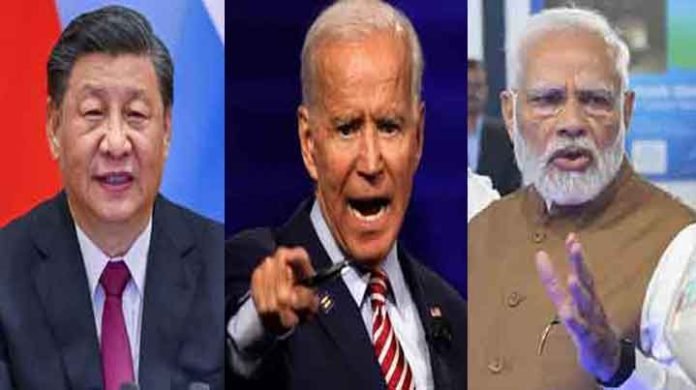Monday marked a significant milestone for India as it engaged in both domestic electoral processes and international diplomacy. While the country witnessed the fourth phase of its election season, it also sealed a pivotal agreement with Iran on the global stage. At the heart of this agreement lies the Chabahar Port, a strategic asset with far-reaching implications for regional dynamics. Amidst this development, reactions from key players like America, Pakistan, and China have surfaced, indicating the geopolitical tremors triggered by India’s assertive move. This article delves into the why behind America’s, Pakistan’s, and China’s unease over the Chabahar Agreement and its ramifications for India’s foreign policy calculus.
Chabahar Port Agreement: A Strategic Maneuver by India
India’s decision to enter into a 10-year agreement to manage the Chabahar Port in Iran holds immense significance, primarily aimed at bolstering its trade and connectivity networks, particularly with Central Asia and Afghanistan. By securing this deal, India gains a strategic foothold in the region, circumventing its historical dependence on Pakistan for accessing these markets. This move aligns with India’s broader geopolitical ambitions, positioning itself as a key player in the evolving landscape of South and Central Asia.
Economic Implications for India
The Chabahar Port Agreement not only diversifies India’s trade routes but also opens up avenues for enhanced economic cooperation and investment opportunities. With an investment of $120 million by the Indian company India Ports Global Limited, the port is poised to become a thriving hub for regional commerce, stimulating India’s economic growth trajectory. This strategic investment underscores India’s commitment to fostering economic prosperity and regional integration, while reducing its reliance on traditional transit routes.
Geostrategic Significance: Implications for Regional Dynamics
India’s acquisition of the Chabahar Port management rights marks a historic milestone, with broader geopolitical reverberations. The port’s strategic location in the Gulf of Oman provides India with a gateway to the energy-rich Middle East and Central Asia, bypassing traditional maritime chokepoints. This development challenges the hegemony of Pakistan’s Gwadar Port and poses a direct challenge to China’s ambitious Belt and Road Initiative (BRI), disrupting its maritime Silk Road aspirations.
America’s Reaction: A Response to Shifting Alliances
America’s apprehension towards the Chabahar Agreement stems from its strategic implications in the Indo-Pacific region. As India strengthens its ties with Iran, it counters America’s efforts to isolate Tehran diplomatically. Furthermore, the agreement aligns with India’s broader Indo-Pacific strategy, aimed at balancing China’s growing influence in the region. America’s threat of imposing sanctions on India reflects its concerns over the evolving geopolitical dynamics and its own waning influence in the region.
Pakistan’s Concerns: A Blow to CPEC Ambitions
For Pakistan, India’s increasing presence in the region, particularly through the Chabahar Port, poses a direct challenge to its China-Pakistan Economic Corridor (CPEC) project. The port’s emergence as a rival hub undermines Pakistan’s efforts to position Gwadar as a key node in China’s BRI. India’s enhanced connectivity with Afghanistan and Central Asia not only bypasses Pakistan but also diminishes its strategic leverage over its neighbors, exacerbating Islamabad’s security concerns.
China’s Response: Balancing Geopolitical Equations
China views India’s foray into the Chabahar Port with apprehension, given its potential to disrupt China’s maritime ambitions in the Indian Ocean region. The port’s proximity to the Strait of Hormuz, a critical maritime chokepoint, enhances India’s maritime capabilities and bolsters its naval presence in the region. This development complicates China’s calculus in the Indo-Pacific, forcing Beijing to recalibrate its strategic priorities and engage in a delicate balancing act between its ties with Pakistan and India.
Navigating Geopolitical Waters
The Chabahar Agreement represents a watershed moment in India’s quest for regional influence and connectivity. By securing management rights to the Chabahar Port, India asserts its position as a key player in the evolving geopolitical landscape of South and Central Asia. However, this move has elicited reactions from major stakeholders like America, Pakistan, and China, underscoring the complex interplay of interests in the region. As India navigates these geopolitical waters, the Chabahar Agreement serves as a testament to its strategic acumen and diplomatic prowess in shaping the contours of regional security and economic cooperation.
















